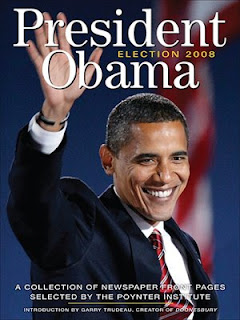 No Laughing Matter By JIM MCTAGUE
No Laughing Matter By JIM MCTAGUE
Cartoonist and blogger Scott Adams is outspoken about economics, politics and more -- but tight-lipped about Dilbert, hero to cubicle jockeys.
JUST WHEN YOU THOUGHT THE ECONOMY COULDN'T POSSIBLY get worse comes this disturbing news: Dilbert's mismanaged high-tech company is foundering, jeopardizing the lovable cartoon character's oppressive but steady job as an electrical engineer in a stuffy cubicle, where he's manufactured laughs about illogical and inhumane corporate managers for nearly 20 years.
Barron's won't divulge the climax of the current plot. During a recent interview, Dilbert's creator, Scott Adams, asked that we merely hint at what lies ahead for the cylinder-headed nerd with the upturned, clip-on tie. But read the daily Dilberts carefully over the next few days or weeks; clues abound and they don't point to a happy conclusion.
That's fitting because, as Adams notes in Dilbert 2.0, his $85, 576-page 20th-anniversary collection of 4,000 of his more than 8,000 cartoon strips (plus a DVD): "Dilbert is most popular when the workplace is at its worse." In fact, the strip, a window on workplace absurdity, took off during the downsizing binge of the early 1990s. In one memorable sequence from that period, Dilbert competes with a monkey to keep his engineering job. Dilbert wins, but his victory jig is short-circuited by his pointy-haired boss' decision to place the monkey on the upper-management fast track. Sounds like a telling commentary on the corporate world of 21st century's first decade, too.
Adams' current strips and very funny blog (http://www.dilbert.com/blog/), which often feature the cartoonist's insightful economic and stock-market commentaries, provide more hints about Dilbert's fate. A Dec. 12 blog argues that the recession is anything but temporary: "I think we are on the verge of a change as profound as the Industrial Revolution. Society will have to retool its expectations to meet the reality that there just won't be enough money to provide necessary services if we insist on consuming in an inefficient way."
One clue about Dilbert's fate appeared on Dec. 13 in newspapers around the world (Dilbert is published in 70 countries and 25 languages) in what turned out to be one of the most popular episodes in the strip's history: A financial adviser recommends that Dilbert's pointy-haired boss invest all of the company's funds in sick livestock. Don't buy just one sick cow, the adviser urges; buy an entire herd, because by aggregating sick cows, the risk goes away. "It's called math," the adviser adds, in a send-up of the asset-backed securitizations that have helped topple the global economy.
The financial adviser, by the way, is a malicious canine. In his blogs, Adams is equally unkind to real advisers and money managers. In his view, formed long before the disrobing of Bernie Madoff, they're always conniving to steal investors' money. Perhaps this depiction is payback: Adams lost a bundle following advice during the tech bubble, which also convinced him that investing in individual stocks and "professionally managed" funds is a losers' game. His advisers put half of his portfolio into WorldCom, Enron and other sure things and lost 40% of his invested cash, he says. He managed the other half and lost 20% in the tech wreck.
"Most of the investments I made in individual stocks went bad because managements were lying. They are the source of the information for the markets." His conclusion: "It is even dumber to pay an expert to talk to the liar for you and charge you 1% of your portfolio." Some folks who bought funds of funds that invested with Madoff surely would agree.
Read entire article:
http://online.barrons.com/article/SB123094660981850775.html
 Publisher’s Weekly’s Children’s Picture Book Bestsellers
Publisher’s Weekly’s Children’s Picture Book Bestsellers 









